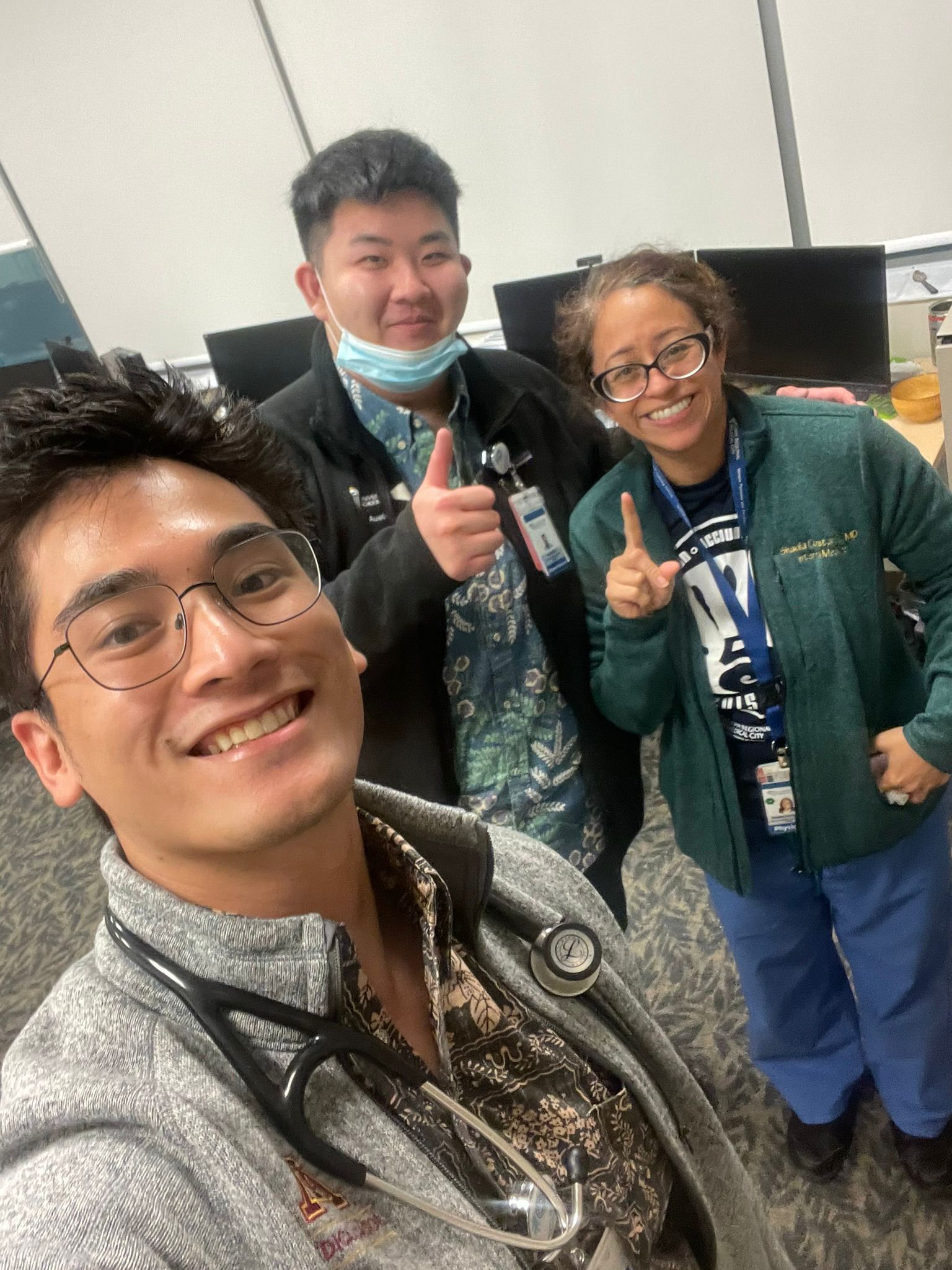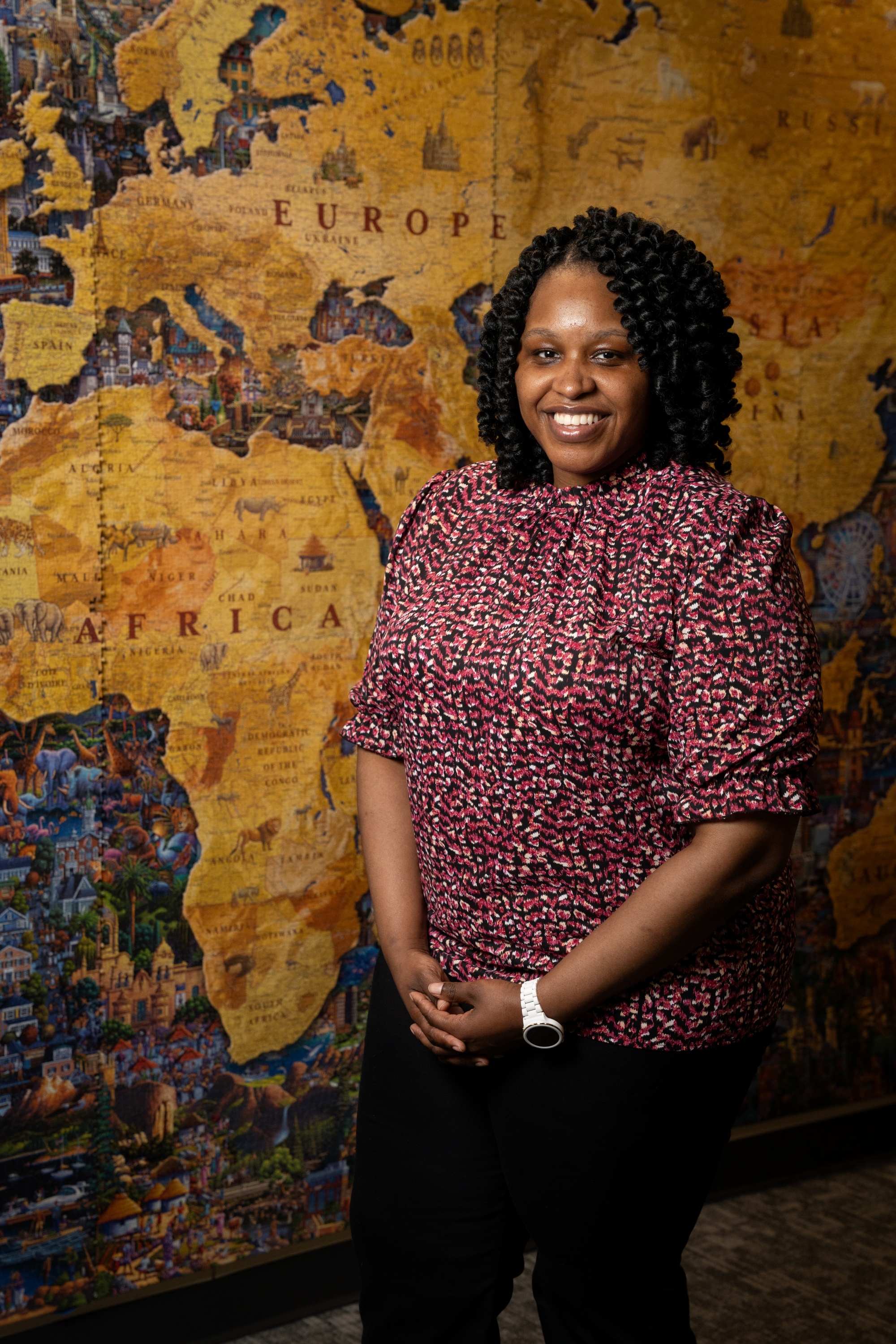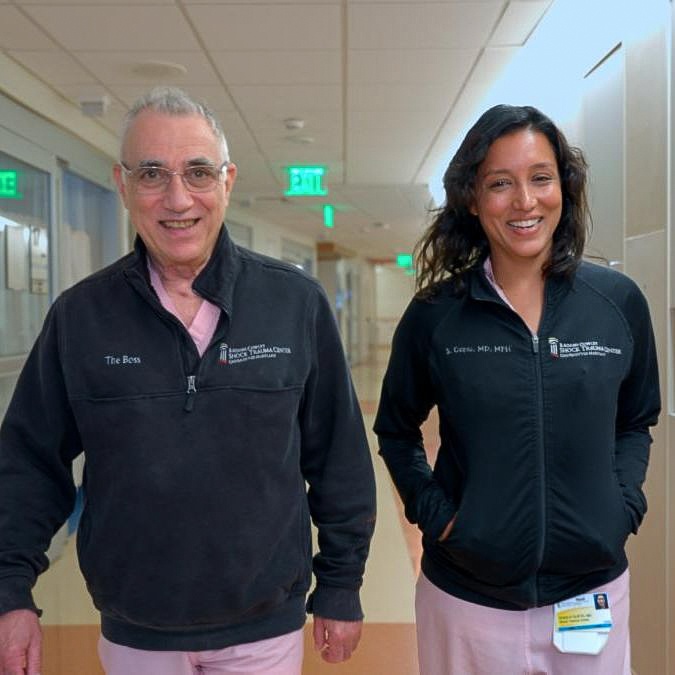
Thomas Scalea, MD, FACS, FCCM, has seen a lot of things in his 40-plus years of working in trauma surgery, the last 28 at the University of Maryland R Adams Cowley Shock Trauma Center where he is physician-in-chief. And one thing he has learned is to never say never.
On this crisp September morning, he is talking about the latest Shock Trauma breakthrough, the launching of a fully online, two-year Master’s in Trauma Sciences program, the first and only such graduate program based in the United States and one of the few in the world.
“When I arrived here in 1997, we had, by today’s standards, very primitive computers. You didn’t have your whole world on your telephone,” said Scalea, the Francis X. Kelly Distinguished Professor of Trauma Surgery at the University of Maryland School of Medicine (UMSOM). “There has just been an explosion of technology in every facet of our lives.
“This program would’ve been ‘Star Wars’ level stuff in 1997. And you know as I have aged the one thing I never say any longer is that it will never happen. We never would’ve imagined many things that are around today happening, even 20 years ago. And this new program certainly is one of them.”
A collaboration between UMSOM and the University of Maryland School of Graduate Studies (UMSGS), the MS in Trauma Sciences is currently accepting applications for its first cohort of students in fall 2026. Shailvi Gupta, MD, MPH, FACS, director of the new program and associate professor of surgery at UMSOM, said the initial response has been very encouraging.
“There have been hundreds of people who have signed up to get updates on how to apply and there have been thousands of people on the website,” Gupta said. “That being said, with the advice of the School of Graduate Studies, we will limit our first cohort to 15 to 20 students. We really want to provide dedicated mentorship and invest in the student’s career journey. There’s a different intimacy with larger classes.”
The online component allows students to match the MS in Trauma Sciences program with their current work schedule. The first year is identical for all the students, looking at trauma care worldwide, epidemiology, prevention, and how to develop an advanced trauma system. The second year, students can choose between nine electives.
“Trauma represents an important global health burden and a major source of mortality and morbidity, especially in regions of the world that do not have a strong infrastructure,” said UMSGS Dean Kenneth Wong, PhD. “The new program will equip professionals to not only treat trauma when it occurs, but to help build the systems that enable successful treatment at a broad societal scale.”
On-Site Rotation Available
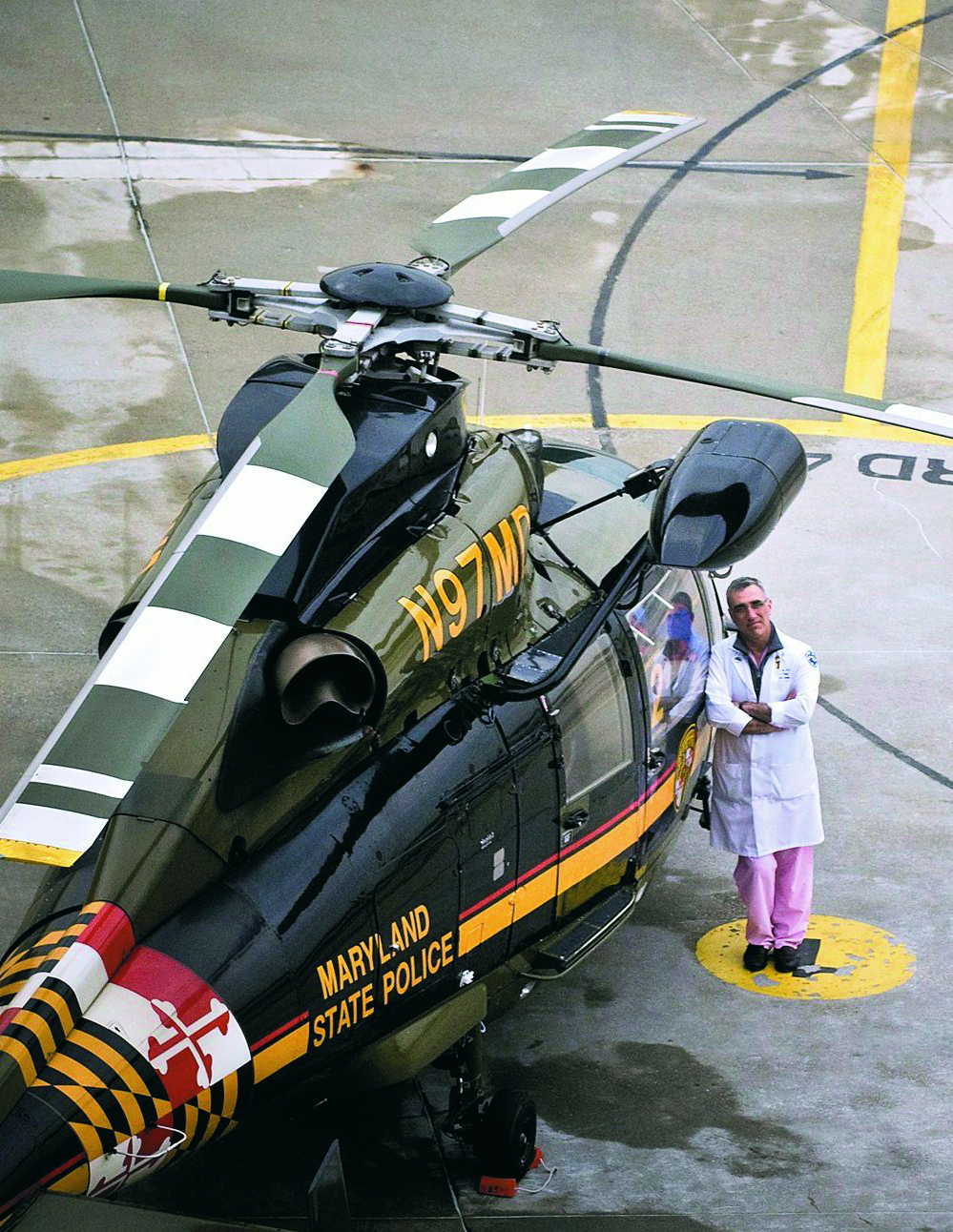
There is a hands-on option for those students who can come to Baltimore. “If the student wants to come here and do a rotation with us, they’re more than welcome to,” said Gupta, who did just that as a fellow at the Shock Trauma Center in 2017 before joining the faculty in 2018. “The tuition is not extra, but people would have to get themselves to Baltimore and be able to stay for two weeks or a month. Because we have an international audience, we understand everybody might not be able to come to Baltimore and we didn’t want to make that an insurmountable piece for program participants. So you also can complete it fully online.”
Asked if some skeptics will say trauma sciences can’t be taught or practiced fully online, Scalea was quick to defend the program.
“I think we’re looking at a much broader range of people here. We’re not just looking at surgeons or emergency physicians who are going to use this as their only training in trauma. This is a much broader view of the trauma world. It is epidemiology, it is prevention, it is international care, it’s a whole bunch of stuff. It’s not cutting and sewing,” said Scalea, who before the interview had just completed a life-saving surgery, one of 600 he does each year. Some 97 percent of the patients who arrive at Shock Trauma survive because of the intricate, complex care that Scalea and his team provide.
He and Gupta also see the program attracting advanced nurses, therapists, community practitioners, those in public health, law enforcement, even surgeons who don’t do a lot of trauma. “It could be a refresher course for a director of trauma at a community hospital that may not see a large volume,” Scalea said.
A Global Impact
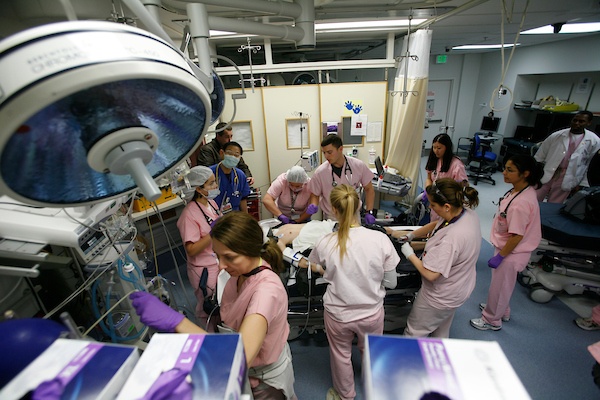
But they also expect the MS in Trauma Sciences to make a world of difference much farther away. Gupta, whose parents are from India and whose training included improving trauma care in low-resource settings such as executing a surgical needs assessment in Nepal and working with the Ministry of Health in Mozambique to develop an ambulance system, said the new online program is perfect for international students.
She gave the example of a master’s class with students from China who returned to their home institution and began a trauma center based on their studies. “Developing international leaders in trauma, that is one of our goals,” Gupta said.
Scalea, who points out that trauma is the leading cause of death and disability in Americans under age 45, says it is a growing problem in developing countries, too.
“There are many places in the world where there’s no 911 equivalent,” he said, sirens in the background. “You can’t just pick up the phone and have the ambulance there in a couple of minutes. And there are places where if you can’t afford to pay for the ambulance, they don’t take you to the hospital. Fixing gunshot wounds is only part of what we do. Our holistic goal is to reintegrate the injured into society. This is a lot of what we’re interested in with our MS in Trauma Sciences, which is really about trying to bring a much better organizational perspective to the delivery of trauma care.”
Wong says it’s an honor to “partner with the dedicated faculty of the Shock Trauma Center. Their skill and passion have been a tremendous inspiration.”
‘A Labor of Love’
Scalea sees himself as a facilitator and humbly says Gupta and colleagues Marcelo Ribeiro, MD, MSc, PhD, FACS, FISS, MAMSE; Jaclyn Clark, MD; and Susan Brundage, MD, MPH, are doing “the heavy lifting” in the program, which he calls “a labor of love.”
“We have had great partners at the University of Maryland, Baltimore and the School of Graduate Studies,” Scalea said. “Without them, we would’ve had a great idea, but executing it would have been impossible. And so, a huge amount of thanks to all who helped get this across the finish line.”
Saying he’s being too modest, Gupta says the MS in Trauma Sciences, in development for years, wouldn’t exist without Scalea, who took her under his wing when she arrived from San Francisco as a fellow in 2017.
“I’m very honored to call Dr. Scalea my boss and mentor,” Gupta said. “He has really changed the game in trauma, and that is driving me to do him justice. I want this Master’s in Trauma Sciences program to represent the excellence that he and the R Adams Cowley Shock Trauma Center represent.”


